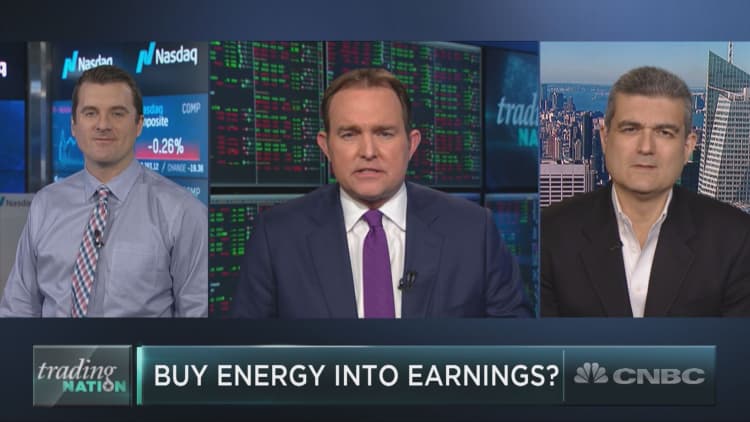Big oil stocks were the big losers during three sessions that saw the Dow Jones industrial average post its biggest-ever daily point drop.
Exxon Mobil shares are down 12 percent, while Chevron has tanked more than 6 percent since Friday, when a better-than-expected U.S. jobs report sent bond yields higher and raised inflation concerns. That sparked a sell-off that saw the Dow fall 666 points by the end of the session, plunge another 1,175 points on Monday and gyrate wildly on Tuesday.
But shares of Exxon and Chevron were already spiraling before the jobs report hit the market on Friday. Both companies reported disappointing quarterly profits before the bell.
Despite an oil price rally, Exxon's U.S. exploration and production business posted a profit loss. Meanwhile, lower margins in Chevron's international fuel refining business and impacts on U.S. refineries from Hurricane Harvey dragged on its overall earnings.
The S&P 500 energy sector turned in the worst three-day performance in the index, shedding more than 7 percent.

While shares of Exxon fell another 1.7 percent on Tuesday, leading the laggards as the Dow rebounded, Chevron's stock bounced 4 percent, posted the fourth-best daily performance in the index.
On Tuesday, investment bank Barclays downgraded Exxon from overweight to underweight and lowered its price target from $91 per share to $84.
Barclays argues that current valuations still reflect Exxon's "rich historical norms," but the underlying fundamentals behind the company have deteriorated — due largely to its "ill-timed, low margin and extremely expensive" investments in U.S. shale oil and Canadian oil sands.
"We think that XOM is facing an almost insurmountable task to fix its upstream profitability problem, which may take at least 5+ years before its book returns, unit cash flow, and profit could begin to see meaningful improvements," Barclays analysts said in a research note.
Unless U.S. natural gas prices rally unexpectedly, Barclays says returns in Exxon's upstream business — which explores for and develops oil and gas — won't improve much compared to Chevron, which Barclays upgraded to overweight on Tuesday.
The bank says Chevron's fundamentals are improving at a brisker pace than its peers, and the company's valuation and risk-reward outlook are attractive compared to Exxon. Barclays upped its price target on Chevron shares to $135 from $130.
Correction: This story has been corrected to reflect that Barclays raised its price target on Chevron to $135 from $130 and lowered its prices target on Exxon from $91 to $84.


